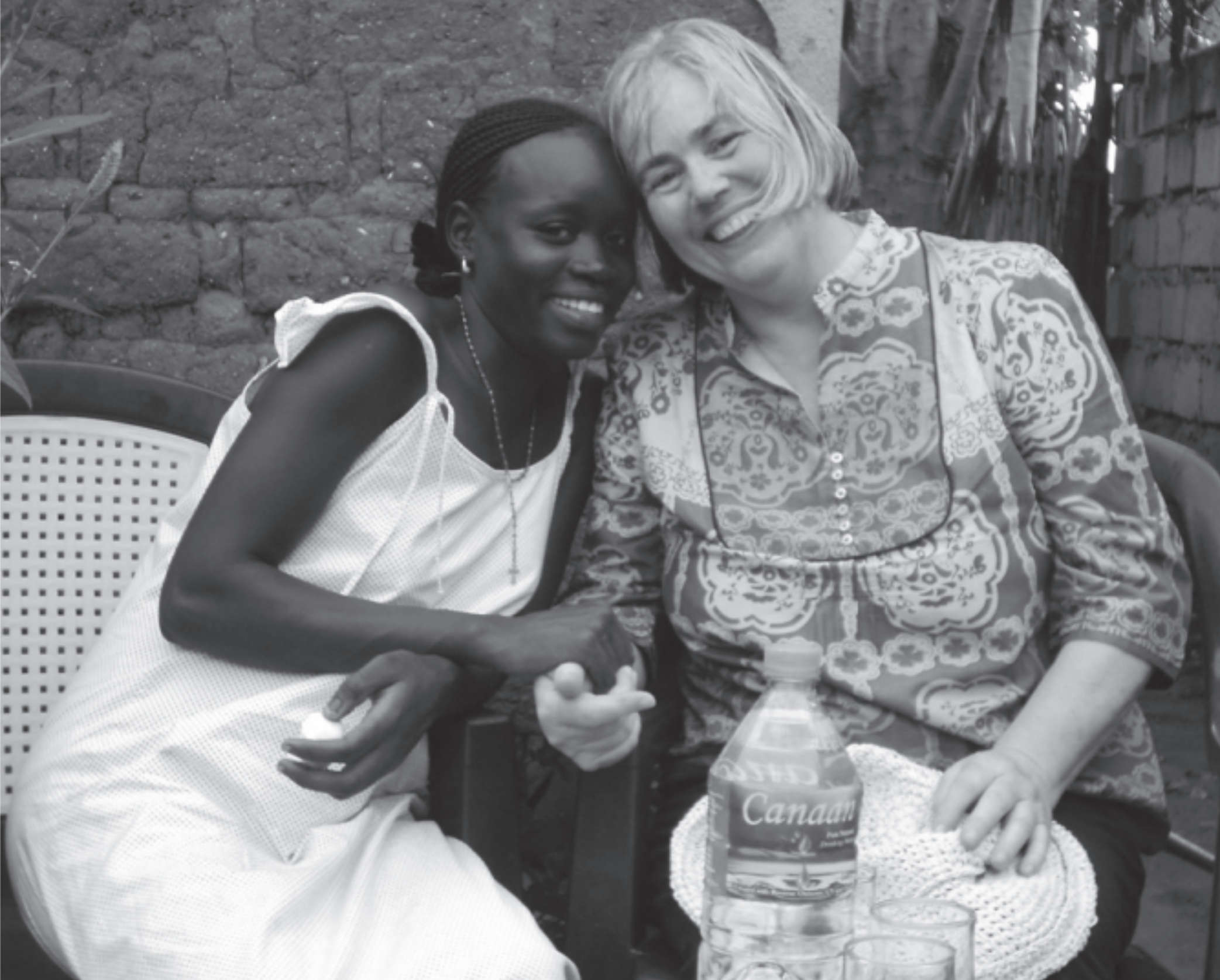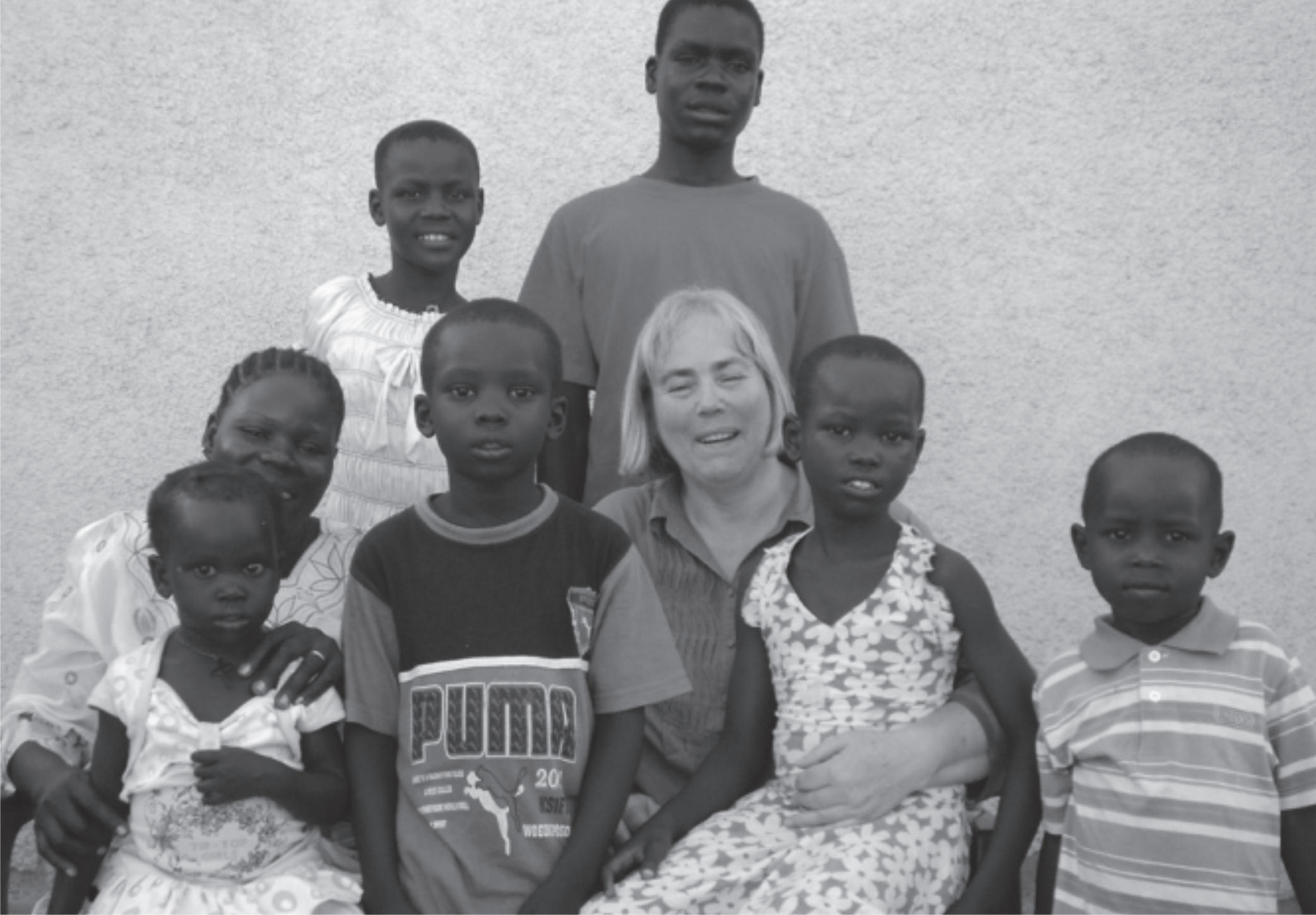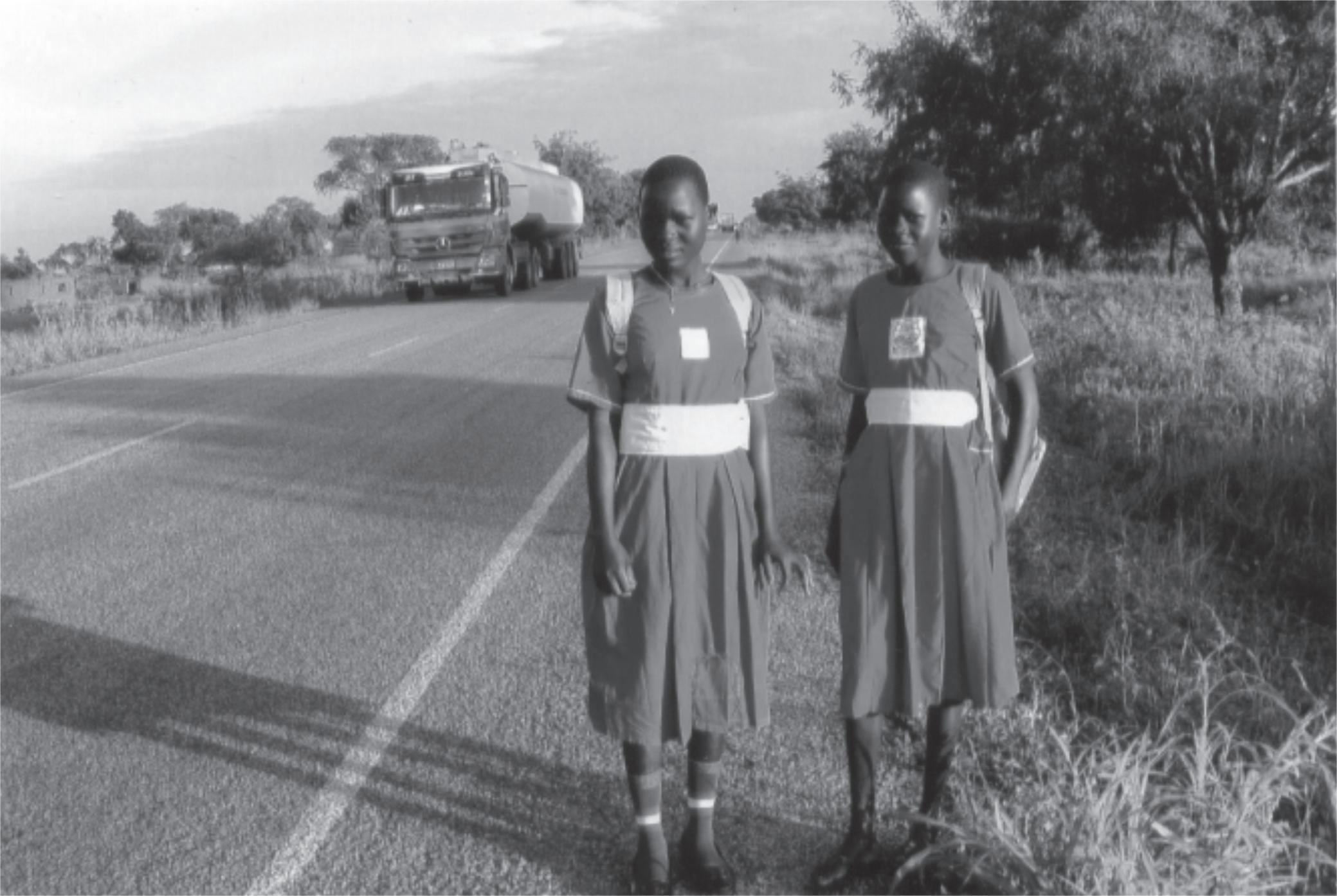TERRY WHITEBEACH
Essay | Weaving Peace – Three Sudanese-Tasmanian Writing Projects
The challenges and rewards inherent in collaborative crosscultural writing projects are numerous. That our national fund of stories should expand to include both the marginalised and our newest citizens seems obvious to me. Recently this led to my involvement in three projects with the Sudanese community in Southern Tasmania.
The first is the biography of a South Sudanese colleague, Sarafino Enadio, who was born in 1975 during the protracted civil war in Sudan and, as a seventeen year old, was forced to flee from the war. He spent more than a decade in refugee camps, where he married, began his family, and trained as a UNHCR peace facilitator.
During the two years Sarafino and I have been recording his life history, A Little Peace, a referendum was held in South Sudan and the people voted overwhelmingly for independence. Sudanese people in Tasmania had to travel to Melbourne twice in less than a month, firstly to register and secondly to vote. Only a certain number of centres were ratified - the old regime was not going to make it easy for those of the Sudanese diaspora to have their say. Nevertheless, with assistance from the wider community, most South Sudanese people in Tasmania succeeded in casting their vote.
The long-standing civil war in Sudan has wreaked havoc on individuals, families and communities. After protracted periods in refugee camps many Sudanese have been resettled in Australia, Canada and USA, often without being reunited with other members of their families, or without knowing whether the rest of their family is still living. Sarafino, his wife and two young children were among those resettled in Tasmania in 2004.

Terry and Fozia (Serafino's sister-in-law)

Terry and Izia and Izia’s children
(Izia is Serafino’s “baby” sister
whom he has not seen since she was four years old)
Sarafino and I have had many conversation about what to include in the life history. The prologue reflects one of these conversations.
Sarafino: The reason I want A Little Peace as the title of
this book is that I was born in 1975, during a peace after
the first war ended in ’72. From 1972 to 1983 there was
some peace, then another war, so that in my life I have
had peace for only a very few years. A Little Peace is the
title I thought of from the beginning. Before we met,
even.
Terry: That title has a double meaning – a small amount
of peace – and a small piece of a much larger story. I
have been thinking about how in difficult circumstances,
such as war and great loss, some people fall apart and
others go to the heart of things and uncover truth. I asked
myself, “What is Sarafino’s life about? It is about peace,” I
thought, “how to walk the paths of peace.”
Sarafino: It is.
Excerpt from A Little Peace by Terry Whitebeach and Sarafino Enadio
FAMILY MATTERS
Many of the circumstances of my life have been dictated
by war. I am Sudanese, from the Madi tribe, but I was
born in Uganda, in a refugee camp. In 1974 there was
a bit of peace negotiation going on so my Dad left my
Mum pregnant in Uganda and went back to Sudan to see
what the situation was. The morning after, I was born,
and my Mum got a message that she was to prepare
herself for moving back to Sudan. That’s why she named
me Kabara. It means message in Arabic – my Mum got a
message from my Dad that everything was all right, that
he had prepared a place for his family and was coming
to get us from Uganda, and that my Mum should begin
organising things.
When Sudanese people want to remember something,
they put it in the child’s name. My elder brother is called
Issa, which means nothing, because it seems Dad did not
finish paying the dowry. Another brother is called Aloa,
which means, Let them say what they like – it refers to
someone talking negatively about you behind your back,
or backbiting. They were saying, “Let her fill her house
with boys!” because my Mum was having all boys –
wanting a girl and every time getting a boy!
My two youngest brothers are named Jabakana, which
means bullet (he was born when they were running from
the war) and Sebit – which means Saturday, because he
was born on a Saturday.
That name of mine happened to be something that my
Mum wanted to remember, that she got a message from
my father that very night of the day I was born.
~~~
My Mum, Anizia, lost three of her children. Two girls and
one boy. The children were very small. That was the time
when we were running. I think one passed on the way.
We had no proper food, and they became malnourished.
People ate only one sort of food – cassava leaf – with no
salt – not any other thing. And it’s not good for kids,
but for us because we were grown up we could eat it and
nothing bad happened. I think when they arrived in the
refugee camp and were given proper food the children’s
body systems could not cope and they became sick.
My mother’s parents, Maria So and Lino Wani were separated by war.
Lino was in Juba: he did not manage
to get out of Sudan. He was there looking after himself,
nobody with him. So, he became very old, with no support,
got very sick and then passed away. My Grandma was
with my Mum. She really died because of the death of
her husband. She got the information before Christmas,
and then the following week she became completely sick
and then in the New Year – within two weeks - she also
passed. She was having hope that even in their old age
they wanted to see each other. But they didn’t. It was the
war. So hearing that her husband has passed away - and
that very year her son was killed and his four kids left by
themselves – she herself left this life.
As a teenager displaced by war and living in a refugee camp
in a foreign country, Sarafino made the enlightened decision
that he would not let the war destroy him, but that he would
dedicate his life to finding peaceful solutions in situations
of conflict. Initially he volunteered as a teacher in Kakuma
refugee camp, and later was trained by the UNHCR as a peace
educator and facilitator. He worked in refugee camps initially
with groups of children and later with adults who had been
bitter enemies but who did not want to pass on the legacy of
war and bitterness to their children.
In Tasmania he is one of the leaders of the Sudanese
community, despite his relative youth, and is constantly called
upon to deal with problems traditionally handled by the
elders. War has robbed the community of so many of its elders
that in their absence younger people have had to assume their
roles. Sarafino has memorialised this situation by naming his
youngest son Amboyo: which means no elders; or the elders are
no longer here.
Sudanese children born in refugee camps or in Australia suffer potentially damaging dislocation from their native language and culture. To address this issue we began a second project – the creation of two bilingual picture books in Ma’di and English: When I was a Girl in Sudan and When I was a Boy in Sudan. Madi community members supplied the narratives and Tasmanian children’s writers Julie Hunt and Anne Morgan collaborated with us on the text. The next step is to finalise the illustrations and design and then to publish the books. We intend to make them widely available in Australia (enquiries and/or offers of assistance and support are welcome), and we also hope with the support of the Australian community to be able to supply 1,000 copies to schools in South Sudan, where the language of education no longer is Arabic but English.
Excerpt from When I was a Girl in Sudan.
Long time ago
when I was a girl in Sudan
our elders tell children
teaching-stories.
Long time ago, there is a famine.
Everyone must work hard to get food.
But Mr Hare is too lazy.
He covers himself in sap –
that shiny gum from the tree.
He puts it all over his body.
It glues his fur together in lumps.
He tells his wife Emvozia he has leprosy
and cannot be expected to look for food.
But he is not sick.
He is just very clever.
Emvozia tells Ito – Mr Hare, “Go and find food.”
Ito says, “I am too sick. Look, I have leprosy. I cannot
look for food.”
We listen and laugh.
Then our parents ask us to repeat the stories.
In all the stories of Mr Hare
he is having a happy ending.
because he is clever.
You tell people like Ito to do something
but they will dodge it in a very clever way.
But I don’t want to be like Ito.
I don’t want to be lazy and tricky.
My parents want me to be a good Madi girl.
To have respect – laru.
In discussions about the best way of making both Sudanese and Australian born children aware of what Sudanese people had gone through during the war, we again decided story was the best vehicle. This was the impetus for the third project, a young adult novel, Run, Obulejo, Run! which tells the story of schoolboy’s journey, on foot, across Sudan to Kenya, fleeing from the invasion of his town by rebel soldiers. It is based on the experiences on Sarafino and many other South Sudanese school children who were displaced by the war.
Excerpt from Run Obulejo1 Run!
WORLD-END
Moonset and star fade. Deep darkness blankets the
town. The sun far below the horizon, the earliest birds
not yet stirring.
Obulejo dreams the sound of bombs falling. Wakes to
find he has dreamed a nightmare that is real - Armoured
Vehicles roaring - guns firing - GM3s, AK-47s - finds
himself sprinting through gunfire, bullets zinging past –
whee! whee! whee! machine guns hammering. His heart
thumps, his legs pump.
[1
Obulejo = Trouble tomorrow]
Run Obulejo run!
This is the way it happens: the rebels target a town,
approach government barracks in a semi-circle, leaving
only one narrow avenue of escape for townsfolk. Their
orders are to fire into the air to avoid civilians but many
are caught in crossfire and fall dead or wounded. Obulejo
waits every moment for a bullet to slice into his body.
The noise is outrageous - heavy machinery roars,
artillery fire rattles, a thousand soldiers chant patriotic
songs; government forces return fire, yell defiance to the
rebels. People scream and moan, and above the din,
Police bellow orders at those who are slow to leave.
“Come out of your houses!” they shout, moving from
street to street. “If there are people in there, please just
leave the house! Don’t take anything! Leave the house
at once! Go! Now!”
Frantic parents snatch their children up from sleep, fling
bundles of clothes and food together. There is no time
to farewell the old who cannot run. They must be left
behind. Please God they may survive.
For now, the young must be carried to safety.
Run!
The government troops routed, the rebels race through
the empty streets, breaking down doors, emptying
shops and businesses, looting, smashing, burning, and
destroying.
And before them, racing for the shelter of the bush, the
terrified people of Torit.
BREATHING SPACE
Hidden in low bushes on the hillside beyond Torit, heart still
thumping, legs trembling, Obulejo at last has time to pay
attention to his feet. They are cut to ribbons. Strange - he
felt no pain while running. Now the lacerations throb, and
his throat burns with thirst. He has carried no food or water
with him but he dares not venture out yet to search for either.
His only possessions are the shorts he is wearing, the school
shirt thrust into his waistband, and now draped behind him,
and his sandals, still dangling from one wrist. There had been
no time to put them on, and anyway it’s not possible to run in
sandals.
Obulejo sits, exhausted, head in hands for what seems like
forever. In and out of consciousness he floats, only to startle
awake and peer down in disbelief, again and again, at the
smoking city.
Then he feels a nudge. Alarmed, he jerks his head round, ready
to run or plead for his life. But it is only Auntie, a friend of his
parents. She holds out a kere of water and a small handful of
godo. Obulejo smiles his thanks and takes a sip of the water and
a small bite of the flat cake: Auntie has five children huddled
around her and she will need the food and water for them.
But gratitude loosens his parched throat, soothes his empty
belly and eases his heart.
At sixteen the world he knows has ended. Thrown into a
dangerous nightmare, he has become homeless. A displaced
person. Now he must find his way to the border, and safety.
Find a way to rejoin his family. Panic rises in him. He is well
used to responsibility but always there were Mama and Baba,
Aunties and Uncles to guide and steady him. The village, the
whole community. Not just a boy on his own. Now Auntie and
her children are his only family.
He reaches out his hands to the youngsters and gathers
them close, shows them a game to play with leaves, so
that Auntie is free to attend to her wailing baby. The
children are easily distracted by the leaf game, and soon
their frightened whimpers turn to smiles. The baby
soothes itself at its mother’s breast and for a moment, in
this small, insecure hiding place, peace reigns.
Reworking the earlier drafts of these three projects it became obvious to me, as the writer, that a deeper level of familiarity with South Sudan was needed to enhance the narratives and make them more immediate and powerful to readers. How to achieve this? Sarafino had his memories and his first hand experience, and although I had read books and seen documentary films, I had never set foot in Africa. The answer was obvious, so in September this year we travelled together to South Sudan, where I was able to experience for myself the lush and beautiful countryside, meet many wonderful Sudanese people (and one or two scoundrels) and witness the joyful reunion of Sarafino and his family and friends, after so many years of separation.
A more sobering aspect of the trip was the constant encounter with the inescapable evidence of decades of war – whole towns gone, infrastructure and industry destroyed, roads, schools, churches, hospitals bombed – no regular electricity or fuel supply available, no postal or telecommunications system; basic commodities hard to acquire. People are only now cautiously returning to their villages, where they must cultivate their food crops close to their houses in order to avoid unexploded land mines throughout the bush.
The most difficult aspect of the journey for me was the shock of a direct encounter with the results of war, for Sarafino, it was the traumatic memories evoked as he revisited certain places. Our trip continues to generate wide and and sometimes pained discussion. It has deepened the level of openness and honesty between us, interrogated our shared endeavours and thrown new light on the challenges we face: for me, the writer, to imaginatively enter more fully this world I have now glimpsed, and to attempt to convey a deeper sense of it to readers: for Sarafino, to continue to revisit old joys and sorrows, break open old wounds and to make accessible to me his memories and experiences so that the finished works may be able to articulate as authentically as possible much that is not easily accessible to, or readily understood by, most Australians. But that surely is the work of literature: to enable the reader to inhabit both known and unknown worlds – to make the familiar unfamiliar and to make the unthinkable and unknowable known and close and true. Certainly it is the work of peace.

Irye District School children on their way to school in Loa
(not far from Nimule, near the South Sudan/Uganda border).